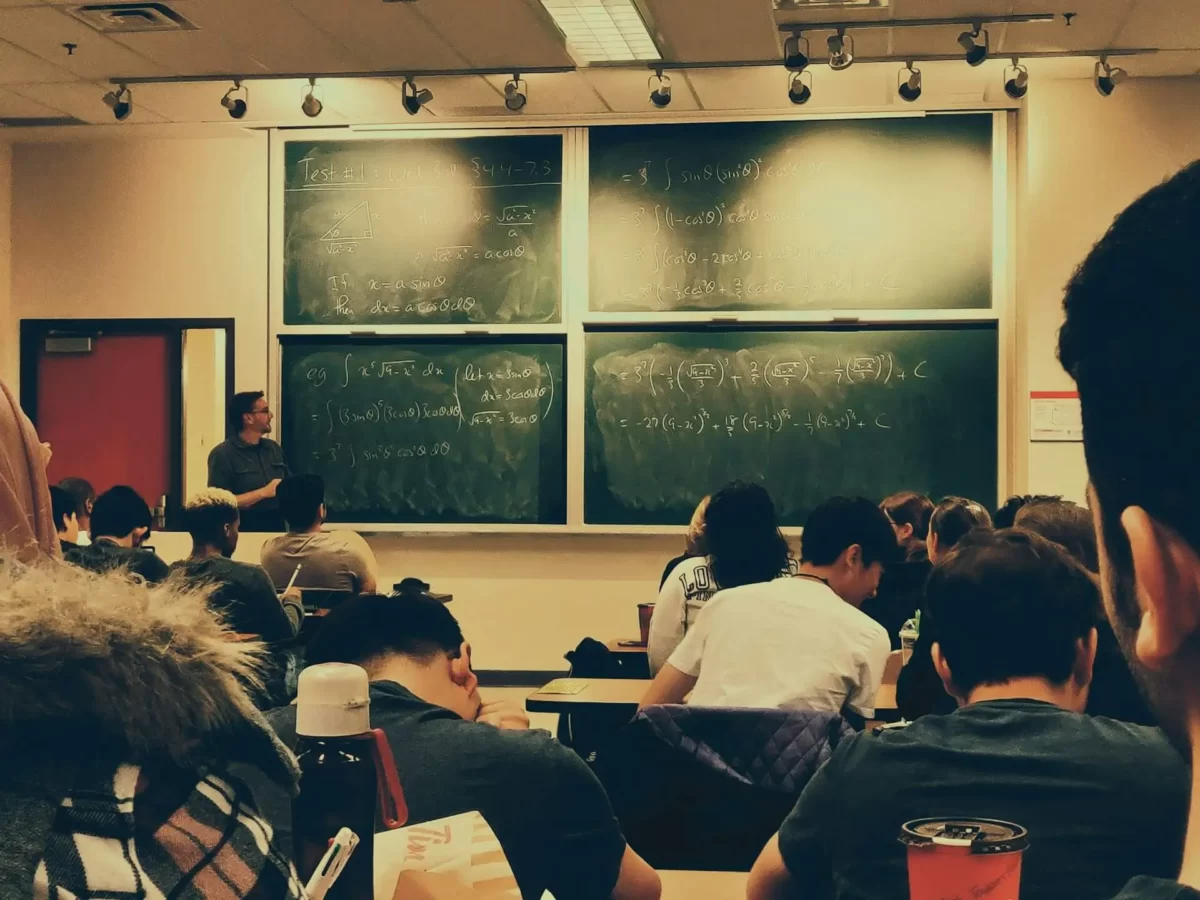These institutions, renowned for their academic excellence, are more than just colleges; they’re a testament to the power of knowledge, ambition, and tradition. In this article, we’ll explore the rich histories and unique school cultures of each Ivy League school, from the hallowed halls of Harvard to the innovative spirit of Cornell. We’ll also delve into their rankings, the vibrant life on their campuses, and the influential figures they’ve produced. And, of course, we’ll discuss these institutions’ impact on society and education. So, whether you’re a prospective top-school student, an academic enthusiast, or just curious about the Ivy League, this comprehensive guide to graduate schools is for you.
The Top Eight Ivy League Schools
Let’s delve into the heart of the best Ivy League schools, exploring each member institution’s unique characteristics, from its academic programs to its vibrant campus life.
1. Brown University
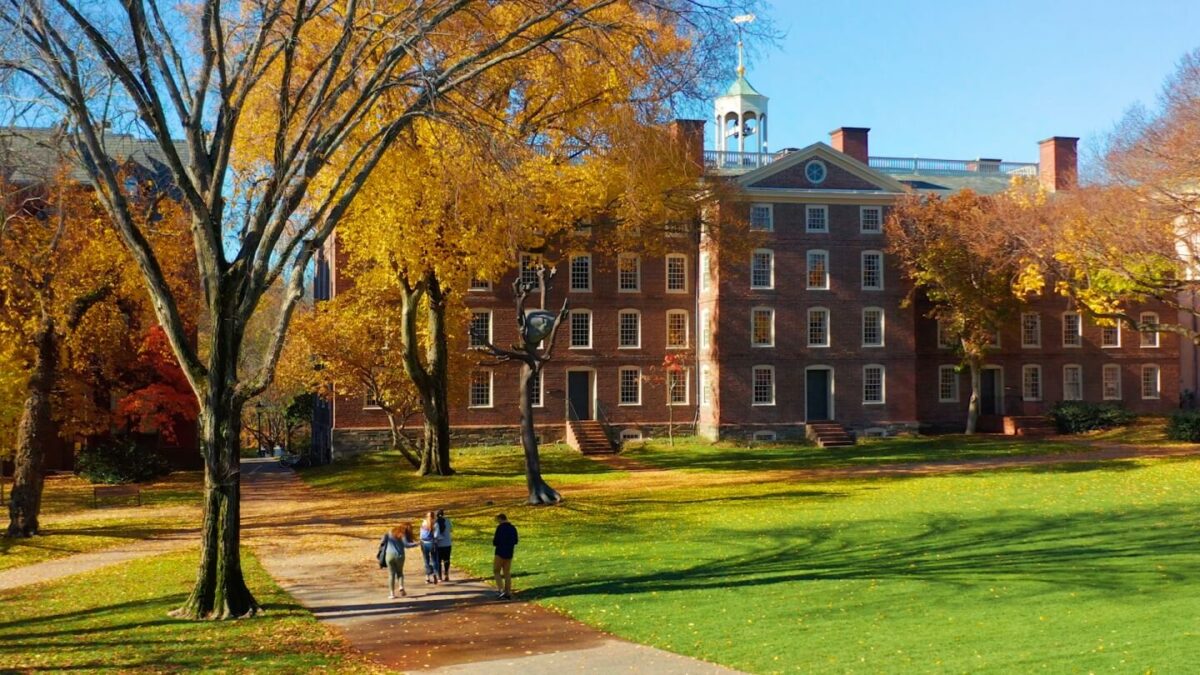
Brown University, an Ivy League institution located in Providence, Rhode Island, is renowned for its innovative, open curriculum that encourages students to design their own course of study. The student body is diverse, with individuals from all corners of the globe contributing to a rich tapestry of ideas and cultures. The faculty at Brown are leaders in their fields, fostering an environment of intellectual curiosity and academic rigor.
2. Columbia University
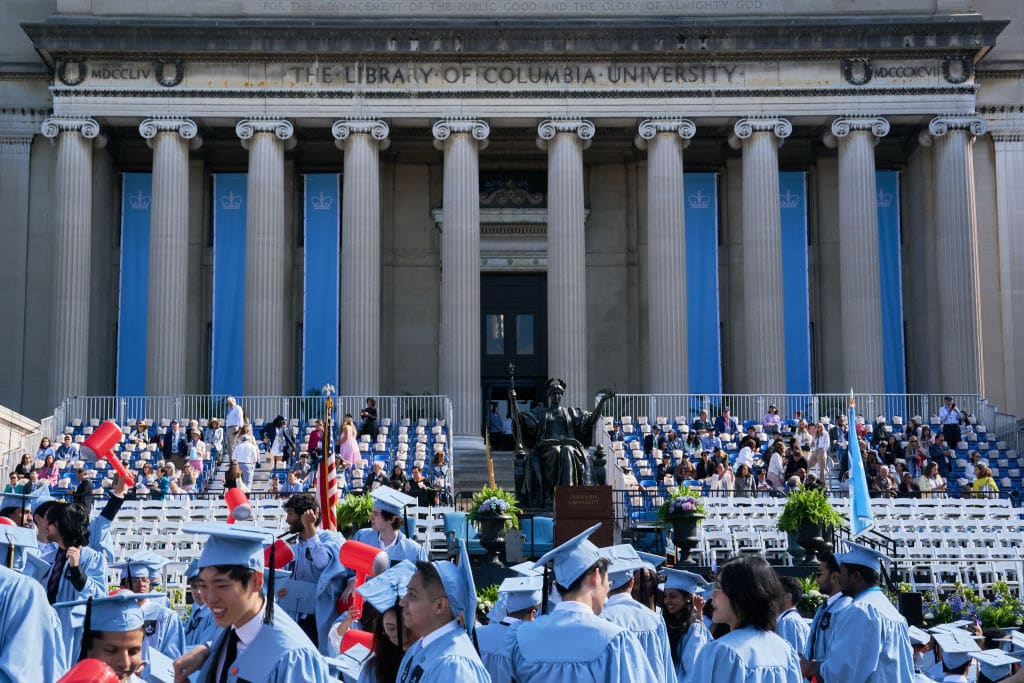
Situated in the bustling heart of New York City, Columbia University offers a unique blend of rigorous academics and vibrant city life. Known for its strong programs in the humanities and sciences, Columbia fosters a culture of intellectual growth and innovation. The student body is diverse and dynamic, contributing to a lively campus culture as diverse as the city.
3. Cornell University

Cornell University, located in Ithaca, New York, is a private research institution known for its broad academic programs in engineering, hotel management, and agriculture. The campus life at Cornell is vibrant, with many student organizations and activities catering to a wide range of interests. The faculty at Cornell are renowned scholars and researchers, contributing to the university’s reputation as a leading Ivy League institution.
4. Dartmouth College

Dartmouth College, located in Hanover, New Hampshire, offers a close-knit community and a focus on undergraduate education. Known for its strong programs in the liberal arts, Dartmouth fosters a culture of intellectual curiosity and personal growth. The campus life at Dartmouth is rich in traditions and student activities, contributing to a unique and memorable college experience.
5. Harvard University
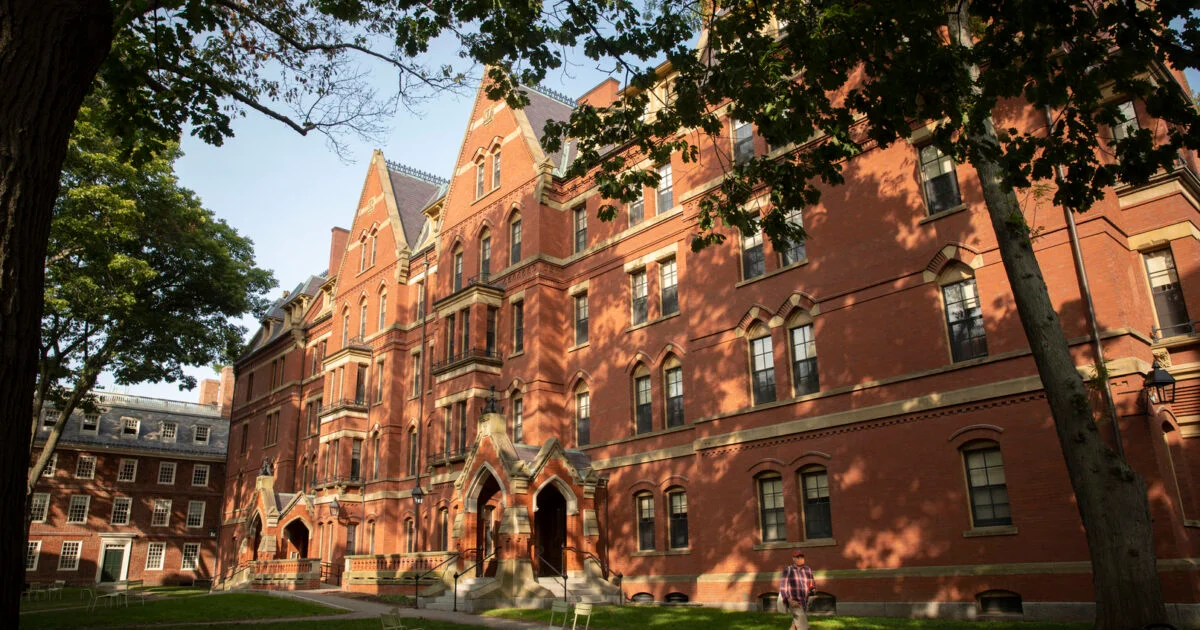
Harvard University, one of the oldest and most prestigious Ivy League members, is known for its rigorous academic programs and distinguished faculty. In Cambridge, Massachusetts, Harvard offers a rich campus life, with a diverse student body and many student organizations and activities. The university’s influence extends beyond its campus, with alumni contributing significantly in various fields.
6. University of Pennsylvania

The University of Pennsylvania, located in Philadelphia, is known for its strong business, nursing, and engineering programs. The campus life at Penn is vibrant, with a diverse student body and a wide range of student organizations and activities. The faculty at Penn are leaders in their fields, contributing to the university’s reputation as a leading Ivy League institution.
7. Princeton University

Princeton University, located in Princeton, New Jersey, is renowned for its strong humanities, social sciences, and natural sciences programs. The campus life at Princeton is rich in traditions and student activities, contributing to a unique and memorable college experience for most students. The faculty at Princeton are distinguished scholars and researchers, contributing to the university’s reputation as a leading Ivy League institution.
8. Yale University
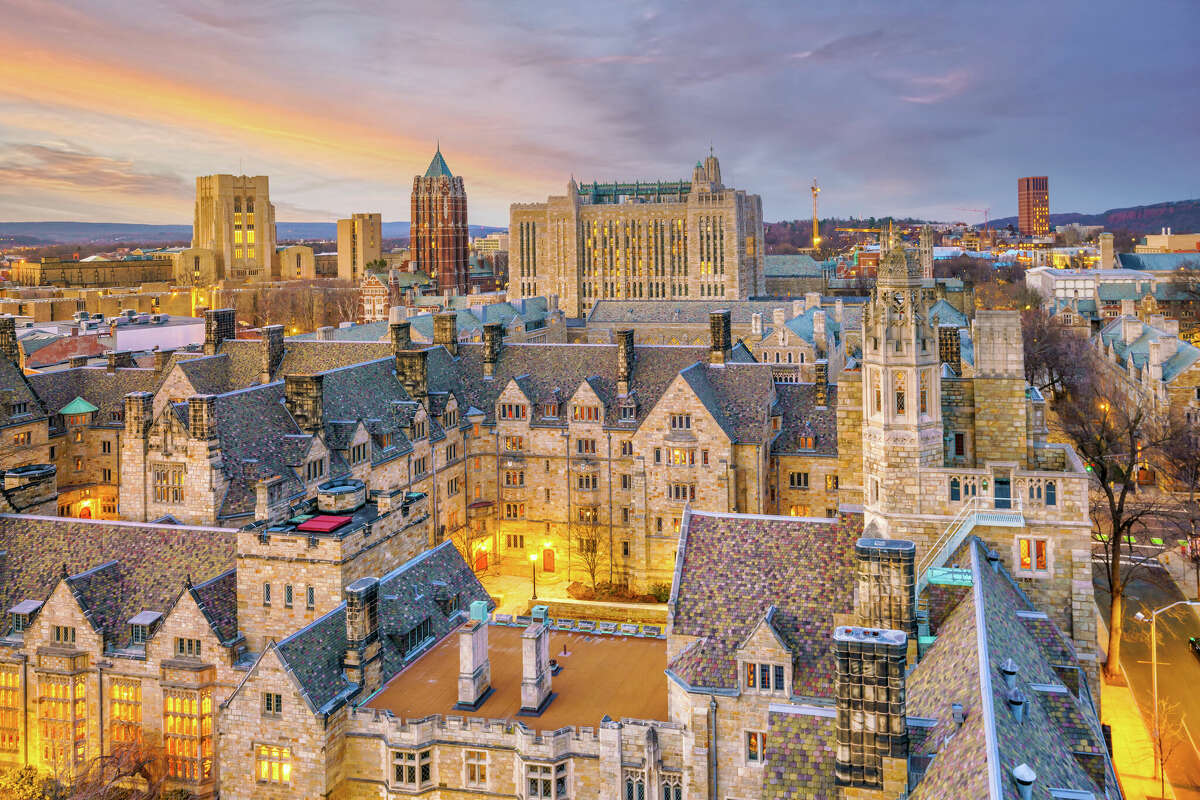
Yale University, located in New Haven, Connecticut, is known for its strong programs in the liberal arts, sciences, and professional schools. The campus life at Yale is vibrant, with a diverse student body and a wide range of student organizations and activities. The faculty at Yale are leaders in their fields, contributing to the university’s reputation as a leading Ivy League institution.
Comparisons and Rankings
Regarding Ivy League schools, comparisons and rankings of prestigious schools are often a topic of interest. These rankings, based on factors such as academic reputation, student satisfaction, top college admissions, and graduation rates, provide a snapshot of each institution’s strengths and areas of focus.
| RANK AMONG IVIES | COLLEGE | OVERALL RANK | OUTCOMES RANK | RESOURCES RANK | ENGAGEMENT RANK |
|---|---|---|---|---|---|
| 1 | Harvard University | 2 | 1 | 1 | 632 |
| 2 | University of Pennsylvania | 4 | 1 | 8 | 13 |
| 3 | Columbia University | 5 | 1 | 9 | 143 |
| 4 | Yale University | 6 | 6 | 13 | 143 |
| 5 | Cornell University | 8 | 12 | 9 | 39 |
| 6 | Princeton University | 9 | 1 | 4 | 632 |
| 7 | Dartmouth College | 15 | 10 | 15 | 143 |
| 8 | Brown University | 19 | 31 | 9 | 39 |
Academic Rankings
Academic rankings among Ivy League schools are often closely contested. These rankings, which consider factors such as faculty quality, research output, and student feedback, highlight the academic excellence that the best colleges these institutions are known for. While each Ivy League school excels in different areas, they all share a commitment to maintaining high academic standards and fostering intellectual growth.
Athletic Performance
Athletic performance is another area where Ivy League schools are often compared. Despite their reputation for academic rigor, these institutions also strongly focus on athletics, with many students participating in a wide range of sports. The performance of these athletic teams is a point of pride for the schools and contributes to the overall student experience.
Financial Endowments
Financial endowments are crucial for Ivy League schools, providing the financial stability to support their academic programs, research initiatives, and student services. These endowments, often in the billions of dollars, are a testament to the long-standing support of alumni and donors who value the institutions’ contributions to higher education.
Admission Rates and Selectivity
Admission rates and selective college admissions are key to comparing Ivy League schools to national universities and prestigious colleges. These Ivy League universities are known for their highly selective admission processes, considering various factors from academic achievement to extracurricular involvement. This selectivity contributes to the high caliber of students at Ivy League schools, further enhancing their reputation for academic excellence.
Life at Ivy League Schools
Life at Ivy League schools uniquely combines academic rigor, vibrant campus culture, and many extracurricular activities. Let’s delve into the various aspects of student life at these prestigious institutions.
Campus Culture and Traditions
Campus culture and traditions play a significant role in shaping the student experience at Ivy League schools. From historic buildings and traditions to modern facilities and innovative initiatives, these campuses are vibrant communities that foster personal growth and intellectual exploration. Each institution’s unique culture and traditions contribute to a memorable college experience.
Extracurricular Activities and Student Organizations
Extracurricular activities and student organizations are vital to student life at Ivy League schools. These activities, which range from sports and arts to community service and academic clubs, provide opportunities for students to pursue their interests, develop leadership skills, and build strong communities. Participation in these activities enhances the student experience, contributing to personal growth and development.
Housing and Residential Life
Housing and residential life at the best Ivy League schools are designed to support students’ academic and personal growth. From traditional dormitories to modern apartment-style housing, these institutions offer a range of housing options to meet the diverse needs of their students. Residential life programs and services further enhance the living-learning environment, fostering a sense of community and belonging among students.
Notable Alumni
Ivy League schools have produced many notable alumni who have made significant contributions in various fields. Ivy League graduates have left an indelible mark on the world, from politics to education and law schools and business to arts and life sciences.
List of Notable Alumni from Each School
Each Ivy League school boasts a long list of successful alumni. For instance, Harvard University counts among its graduates former U.S. Presidents Barack Obama and John F. Kennedy. Columbia University is the alma mater of Ruth Bader Ginsburg, a former Associate Justice of the U.S. Supreme Court. Brown University’s notable alumni include media entrepreneur Ted Turner, while Cornell University boasts graduates like author Toni Morrison. Dartmouth College has produced influential figures like Theodor Geisel, better known as Dr. Seuss. The University of Pennsylvania counts Elon Musk among its alumni, while Princeton University is the alma mater of Jeff Bezos. Yale University has produced multiple U.S. Presidents, including George H.W. Bush and Bill Clinton.
The impact of Ivy League alumni extends across various fields. In politics, they have held high offices and shaped policies. In business, they have led multinational corporations and pioneered innovations. They have produced critically acclaimed works and won prestigious awards in the arts. In academia, they have made groundbreaking research contributions. These successful Ivy League graduates serve as an inspiration for current and future students, embodying the values and aspirations of these esteemed institutions.
Conclusion
The best Ivy League schools, renowned for their academic excellence, have a profound impact beyond their campuses. These institutions, each with unique strengths and cultures, offer unparalleled educational experiences, shaping the minds of future leaders. Their contributions to research and innovation, influence on American higher education, and role in societal changes underscore their significance. The Ivy League’s legacy is undeniable, from the diverse and dynamic student life to the notable alumni who have left their mark on the world. As we’ve explored, these Ivy League universities are more than just schools; they are incubators of knowledge, innovation, and societal change. Whether you’re a prospective student or simply an observer, understanding its impact can provide valuable insights into these esteemed institutions.
Frequently Asked Questions
What other factors besides academic performance, do Ivy League schools consider during admissions?
Ivy League schools look at a holistic picture of each applicant. This includes extracurricular activities, leadership roles, community service, and personal essays. They value diversity and seek students who can uniquely contribute to the campus community.
How do Ivy League schools support students’ mental health?
Ivy League schools recognize the importance of mental health and offer various support services. These include counseling and psychological services, stress management workshops, and wellness programs. They strive to create a supportive environment that promotes students’ well-being.
Are there opportunities for undergraduate research at Ivy League schools?
Yes, undergraduate and graduate students at Ivy League schools have ample opportunities to engage in research. Many schools have programs that pair undergraduates with faculty mentors in their field of interest. These experiences can enhance students’ learning and prepare them for future academic or professional pursuits.
How do Ivy League schools promote diversity and inclusion on campus?
Ivy League schools are committed to fostering diverse and inclusive campus communities. They have offices and initiatives promoting diversity, equity, and inclusion. These efforts include scholarship programs, cultural events, and support services for underrepresented students.
What types of financial aid are available at Ivy League schools?
Ivy League schools offer a range of financial aid options to help students afford their education. These include need-based grants, scholarships, work-study programs, and loans. Many of these schools are committed to meeting 100% of demonstrated financial need for all admitted students.



